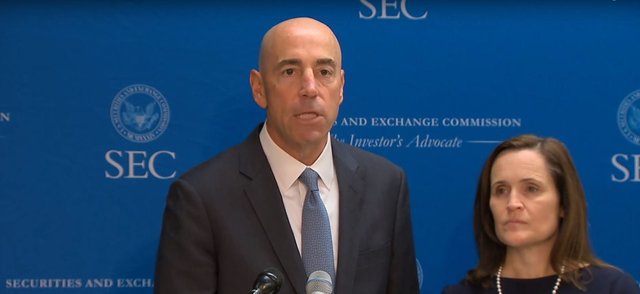The SEC v. ELON MUSK
.jpg)
The SEC seemed very proud of themselves as they spoke before press corps after suing Tesla’s Elon Musk for fraud involving his tweets.
The SEC’s investigation, which is continuing, was conducted by Walker Newell, and Brent Smyth and supervised by Steven Buchholz, Erin Schneider, and Jina Choi in the San Francisco Regional Office.
The litigation will be led by Cheryl Crumpton and Barrett Atwood.
It’s ironic because the very thing Musk was casually tweeting about was taking the company private and getting away from the whirlwinds of a publicly traded company and dealing with demands that have nothing to do with the ultimate success of the company.
The filing from the Southern District of New York identifies the tweets as “false as misleading,” adding:
Musk’s statements, disseminated via Twitter, falsely indicated that, should he so choose, it was virtually certain that he could take Tesla private at a purchase price that reflected a substantial premium over Tesla stock’s then-current share price, that funding for this multi-billion dollar transaction had been secured, and that the only contingency was a shareholder vote. In truth and in fact, Musk had not even discussed, much less confirmed, key deal terms, including price, with any potential funding source.
The primary problem they had with Elon was from a tweet such as this:
Am considering taking Tesla private at $420. Funding secured.
— Elon Musk (@elonmusk) August 7, 2018
Why any profit generating company would want to go public in America today is beyond me.
Capital is so ubiquitous that companies don’t need public money to capitalize and stay competitive.
This is the reason founders must be very careful about accepting Angel and VC money early on, or at least state clearly to early investors that you have NO intention of going public, EVER!
Headaches abound from prying government entities, activist hedge fund managers (think Carl Ichan, Jeff C. Smith, Bill Ackman etc), pressure for more traditional “corporate” structures (bring in the MBAs), more financial reports, more calls, more attorneys, more of everything you don’t like.
Now, the SEC wants to make an example out of Elon, whom they are gaining another level of control over and his twitter account. Yes, his messaging has consequences, but anyone who follows a CEO’s Twitter account should know this is not “Official” crafted statements from the boardroom when someone is tweeting something in their car on the way to the airport!
A founder can no longer promote or announce via Twitter without strict scrutiny from the SEC. Elon Musk and any CEO with a large following is now governed with the same watchful eye as celebrities endorsing cryptocurrency projects.
We want freedom and transparency as investors, yet we’re restricted from receiving information, ideas, or opinions of people closest to the product or service we love.
The bottom line is, when you take a company public, no matter what your majority share stake, the company is no longer yours. Beyond the hostile sharks looking for take-over opportunities, the SEC has jurisdiction to reign in your public actions and statements any time they believe it’s too influential on market reactions.
But isn’t this part of the market? To know what leaders of companies are thinking and calculating in real time? This should be categorized as free and open communications. It is up to the individual to decide if they want to stay to their original commitment or jump ship.
Restraining information is a legacy rules & regulations mind-set that keeps non-connected Wall Street types from being in-the-know early. The SEC must rethink it definitions of a security, accredited investors, and many other rules from the industrial age.
However, I’m not sure if the SEC is seeking fairness and protection of investors as much as flexing the final vestiges of power they want to wield over American market makers. Yet, technologies and innovators they are attempting to control are the catalyst that will soon make them irrelevant.
OK, game on! We’ll see what’s Elon’s next move…

